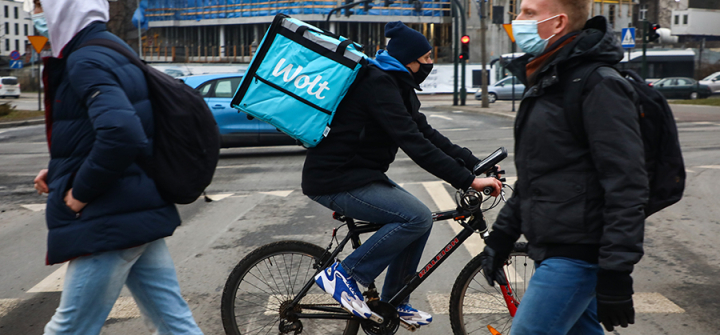50 Million Responses and Counting: Tracking COVID-19 in Real Time
Last week, 73% of people in Argentina said they would definitely or probably choose to receive a COVID-19 vaccine if it were offered to them. But that number doesn’t tell the whole story.
In fact, 82% of people in La Rioja province said they would accept a vaccine, compared to only 69% in the jungle province of Misiones. In the US, 81% of people in Sarasota County, Florida would receive a vaccine, compared to 64% in Okaloosa County.
Understanding local differences is crucial in understanding the spread of the virus, making decisions on how to allocate resources, and targeting educational campaigns to areas that are falling behind.
As part of our Data for Good program, Facebook is collaborating with the University of Maryland and Carnegie Mellon University to invite a sample of Facebook users in over 200 countries and territories to participate in off-platform surveys conducted by these academic partners. (These surveys were designed with privacy in mind, and Facebook does not receive, collect or store individual survey responses. The universities do not learn who took the surveys.)
Since April 2020, our academic partners have collected more than 50 million responses from Facebook users globally detailing the prevalence of COVID-19 symptoms, trends in mask wearing, willingness to get a COVID-19 vaccine, and other insights in near real time. Results from these surveys can help bridge the substantial information gap facing policymakers and health experts as they work to bring an end to this pandemic.
With 2.8 billion users, Facebook has an unparalleled reach that can generate a massive sample size allowing researchers to drill down into self-reported categories such as gender, race, age, profession in real time. Facebook and its academic partners use privacy-preserving weighting processes to minimize errors of representation, including coverage, random sampling and non-response errors when calculating estimates from survey responses. Through these approaches, weighted estimates can then be taken to be representative of adults in the general population.
These data already are informing key policy decisions related to the pandemic response. Organizations like the WHO, the Indonesian Ministry of Health, and the Institute for Health Metrics and Evaluation are using it to understand where COVID-19 public information campaigns are needed most and to inform predictive models.
A mask mandate in Poland, informed by global mask wearing data from a survey on symptoms, contributed to a significant drop in COVID-19 cases. In the US, President Biden’s recently released National Strategy for the COVID-19 Response and Pandemic Preparedness also references reported mask usage from CMU’s COVIDcast in relation to the latest mask mandates. Partners around the world have also used our other Data for Good products like mobility data to contribute to their effective COVID-19 containment strategies in Taiwan and Australia.
It’s not just about geographic reach. Data from these surveys show that there are other factors that are behind significant differences in vaccine uptake, adherence to mask wearing, and more. For example, a recent CMU analysis found significant differences in COVID-19 vaccine uptake across racial and ethnic groups in the US in January—with American Indians and Alaskan Natives having the highest uptake of any group, at 12.7%, followed by Asian Americans at 11.2%, white Americans at 8.9% with Hispanic and Black Americans at 6.5%. Findings like these can inform the design of public information campaigns that resonate with specific populations in defined geographic areas.
The ability to be able to break down data within countries and understand important differences and trends is important. This type of data needs to be part of policy discussions to ensure that vaccines are distributed equitably.
We’re committed to making all this information available in real time to help support governments, multilateral agencies, and researchers with the most accurate, wide-reaching and up-to-date data as they take on this historic challenge. We invite other researchers, government agencies and global health practitioners to draw on these data and tools through the links below.
Kang-Xing (KX) Jin is Head of Health at Facebook.
Ed. Note: Jin shares the following information on how to access aggregate survey data and dashboards:
COVID-19 Symptom Survey
- Aggregated US survey data are made available to the public by Carnegie Mellon University’s Delphi Research Group. CMU’s dashboards are available here.
- Aggregated Global survey data are made available to the public by the University of Maryland. Direct Relief’s dashboards are available here.
COVID-19 Preventive Health Survey
- Aggregated Global survey data are made available to the public by MIT
- COVID-19 KAP Dashboard is made available to the public by the Johns Hopkins Center for Communications Programs
To request access to Non-Aggregated Data for Research Purposes, please see more information online at COVID-19 Symptom Survey or Preventive Health Survey.
Join 50,000+ subscribers in 170+ countries who rely on Global Health NOW summaries and exclusive articles for the latest public health news. Sign up for our free weekday newsletter, and please share the link with friends and colleagues.
Locals wearing masks hustle through the center of Krakow, Poland on February 5, 2021. Image: Beata Zawrzel/NurPhoto via Getty Images




